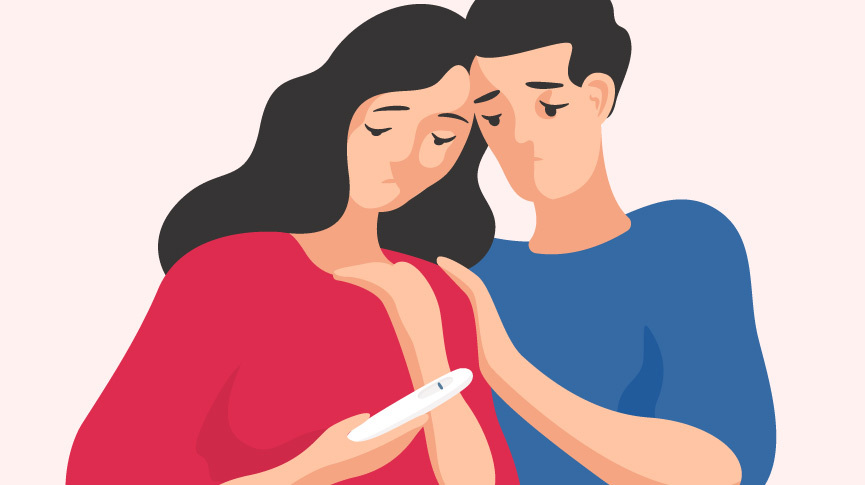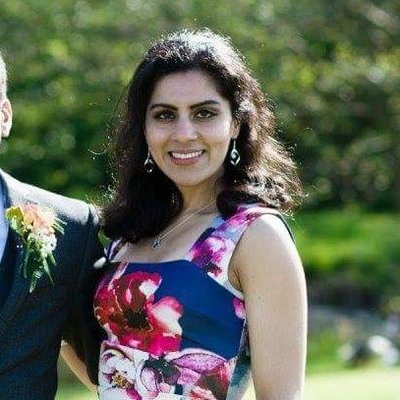Your Fertility Window: How Old is Too Old?

This article was medically fact-checked by Consultant Obstetrician and Gynaecologist Dr. Shree Datta.
Whether having a baby is in your 5-year plan or your 15-year plan, you probably have questions about your fertility. When does that window shut? How old is ‘too old’ to have a baby?
Nothing in life likes to follow a set plan. When it comes to fertility, there’s no magic date you can set a reminder for in your phone. But there are a few hints and guidelines that broadly inform our how long pregnancy will be a possibility for you.
When Does Fertility Start?
Once you start menstruating and ovulating, you’re technically able to start having babies, even if you’re mentally and physically a decade away from being ready to be a parent. And, despite what our paranoia might tell us, our ‘fertile window’ isn’t actually open every day.
Our monthly fertile window is the time during a menstrual cycle when intercourse can result in pregnancy. Technically speaking, this window is within the week before ovulation and the day of ovulation itself, every month. But predicting your fertile window doesn’t happen at exactly the same time each month.
A recent study concluded that more than 70% of women are in their fertile window before Day 10 and after Day 17 of their menstrual cycle.
This means that only about 30% of people were fertile between Day 10 and 17 of their cycle. So even if you think your period comes like clockwork, your fertile window can be highly variable.
When Does Fertility End?
As we mentioned, there is no specific age where fertility ends for everyone. In fact, you can think of your fertility as mostly occurring on a spectrum of less-fertile to more-fertile, with your peak period starting in the late teens and gradually winding down in your thirties. Age is the biggest impact on your fertility as you head toward perimenopause, and when that occurs is highly dependent on hereditary factors. If you have medical conditions such as diabetes, these can also affect your ability to conceive.
Here are some other factors that might impact the age that you reach menopause:
The Age Your Mother Reached Menopause
The most important factor is when your mother’s age began menopause—you’ll probably experience it at around the same age.
Your Ethnicity
It is not known why, but American studies have shown that those of African American and Hispanic descent tend to reach menopause earlier than Caucasian women, while those of an Asian (particularly Japanese and Chinese) background tend to reach menopause at a later age.
Chemotherapy
Depending on the type and location of cancer, some chemotherapy treatments induce temporary menopause in women. If your cycles do return, you may reach menopause a few years before you otherwise might have, but you have options that you can discuss with your doctor.
Ovarian surgery
Surgery to treat ovarian disorders such as cancer can affect your menopause age. Removal of the ovaries (oophorectomy) will result in immediate ‘surgical menopause’. Of course, if your doctor is presenting this as an option for you, fertility will definitely be a topic of conversation.
Smoking
Smoking causes a range of respiratory issues, but did you know smoking also impacts your intimate health? There is also research to suggest it can cause earlier menopause—and it’s the only fertility factor that you can control.
Smoking is thought to have an anti-estrogen effect on your body, and so you’re likely to reach menopause earlier than your mother if you smoked and she did not. Former smokers have only a slightly earlier age at natural menopause than those who never smoked, and the longer the period since you quit, the less impactful.
So Does Menopause Mean the End?
Not quite! Menopause may mean the end of your period, but unfortunately, you may have trouble conceiving much before that. It has to do with both egg quality and quantity.
You’re born with all the eggs you’ll ever have—around a million—and that number is thought to be 25,000 by 37. And, as you age, the egg quality can diminish, meaning higher rates of genetic abnormalities. Some will cause you to be more prone to miscarriage, but also occur in pregnancies that you carry to term.
This can all sound quite doom and gloom, particularly as people decide to wait longer to get married and become parents. While there is a lot of variability in these stats, it’s important to be prepared for the reality of our bodies.
Talk to your doctor about your plans early, so that you’re best prepared for what the future of your fertility might hold!
Remember…
We covered some of the basic guidelines and indicators of your fertility window, but keep in mind: there are always outliers. Your fertility window could naturally be shorter or longer and there are tests that your doctor can do to roughly gauge your fertility age. But that’s to say nothing of your other options for pregnancy, such as IVF.
And, of course, there are plenty of other paths to parenthood, such as adoption, fostering or surrogacy.
Facts checked by:
Dr. Shree Datta
Dr. Shree Datta is a Consultant Obstetrician and Gynaecologist in London, specialising in women’s health including all menstrual problems such as fibroids and endometriosis. Dr. Shree is a keen advocate for patient choice, having written numerous articles and books to promote patient and clinician information. Her vision resonates with INTIMINA, with the common goals of demystifying periods and delivering the best possible care to her patients
Written by:

Lane Baumeister is an internationally-based Canadian writer with several years’ experience creating educational and entertaining articles that discuss intimate health and sexual well-being. When not waxing profound about menstruation, she devotes herself to enjoying extremely good food and equally bad movies.



